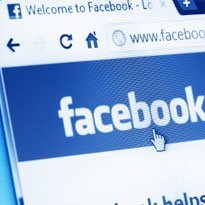A US study suggests that medical boards are starting to get tough on doctors who act unprofessionally on social networking sites.
The study, published as a letter in the Journal of the American Medical Association, asked state medical boards whether they had come across doctors acting unprofessionally online, and what they had done about examples of unprofessional behaviour reported to them.
Out of the boards surveyed, 56% had imposed serious disciplinary measures such as licence restriction, suspension or revocation.
The most common online misdemeanours were inappropriate patient communication and inappropriate prescribing.
Unfortunately, the study (paywall) was not able to match misdemeanour to outcome, to say what kind of offences led to what kind of sanctions, or what happened in particular cases.
“All healthcare providers need to consider their online behaviour and how it could affect patients and the practice of their care” said Ryan Greysen, the lead author of the study and assistant professor of hospital medicine at the University of California.
“This issue is important, especially considering that social media use among physicians is growing at a faster rate than among the general public.”
The study was conducted by Robert Wood Johnson Foundation Clinical Scholars at Yale in collaboration with the Federation of State Medical Boards, and was based on a survey of 48 executive directors of the 68 medical and osteopathic boards in the US.
More than nine out of ten of the boards that responded (92%) had received reports of their doctors engaging in unprofessional contact with patients online.
Apart from the two most common online violations, doctors also uploaded pictures while in an intoxicated state and others made derogatory comments about patients.
The authors argue that the problem of unprofessional online behavior is only likely to increase, because 90% of doctors in the US are using a social media website for personal use, and 67% are using social media professionally.
Humayn Chaudry, president and chief executive of the State Medical Boards said: “Digital media has enormous potential for doctors and patients, allowing us more opportunities to share information and establish meaningful professional relationships.
“But physicians also need to be educated about how to maintain the same professional and ethical standards in their online activity. Failing to do so can hurt patients and end careers.”
Social media misuse by clinicians is an increasing problem in the UK and one which has often left trusts pondering what action to take.
The majority of incidents reported in the UK have tended to involve unprofessionalism at work.
For example, in 2009, a group of doctors and nurses at Swindon’s Great Western Hospital were suspended for taking part in the internet craze ‘the lying down game’, but they were eventually reinstated.
A Guardian Healthcare study in 2011 showed that 72 separate actions were carried out by 16 trusts against staff who inappropriately used social media between 2008-09 and October 2011.
According to the BMA, research also suggests that a small number of doctors have accepted friend requests from patients, an act which can often blur the relationship between doctor and patient.
Various bodies have released practical and ethical guidance for doctors and medical students, including the BMA.
It “recommends that doctors and medical students who receive friend requests from current or former patients should politely refuse and explain to the patient the reasons why it would be inappropriate for them to accept the request.”
The BMA guidance also states that conservative privacy settings should be adopted where possible, and individuals should always remain wary of posting comments which might include defamatory content or breach patient confidentiality.

